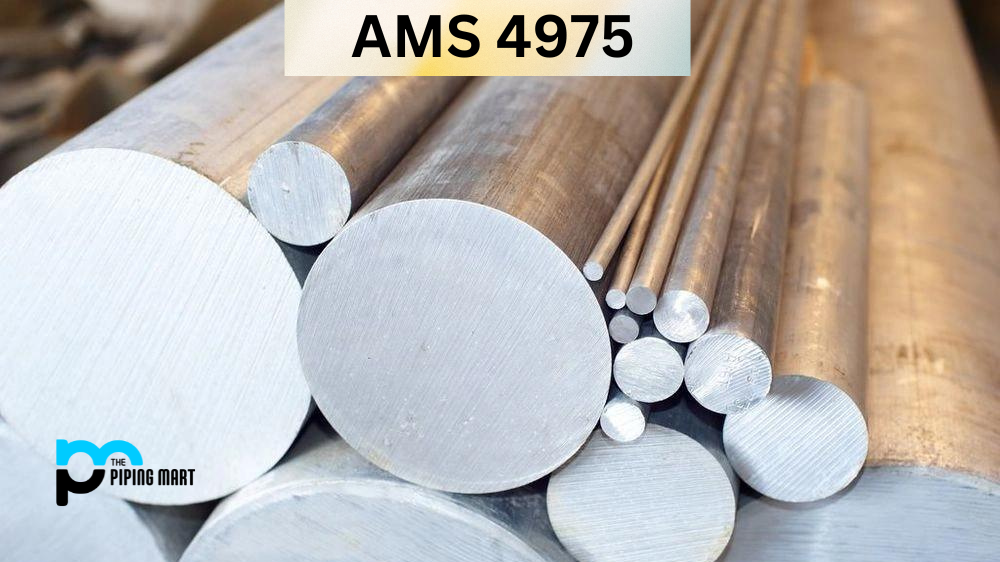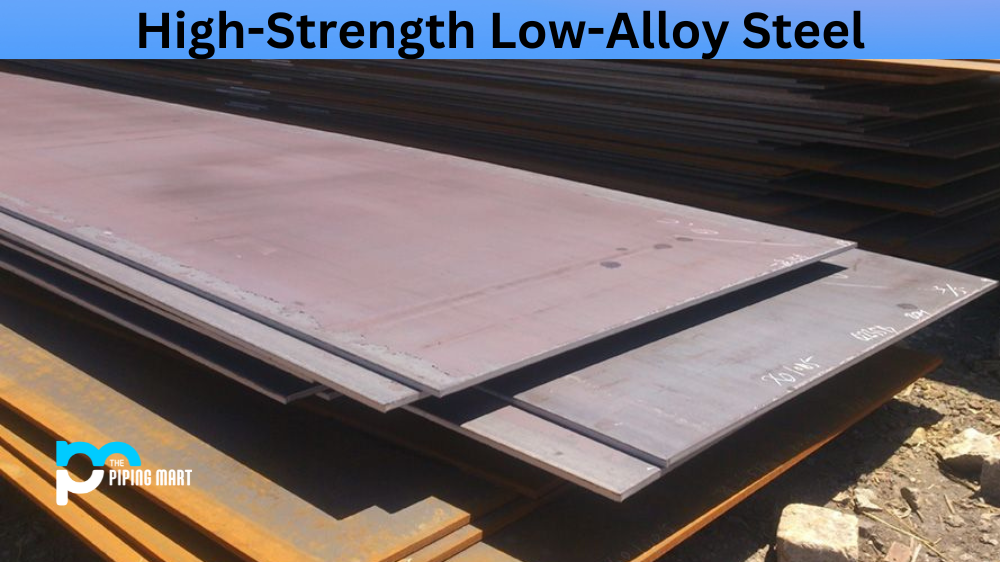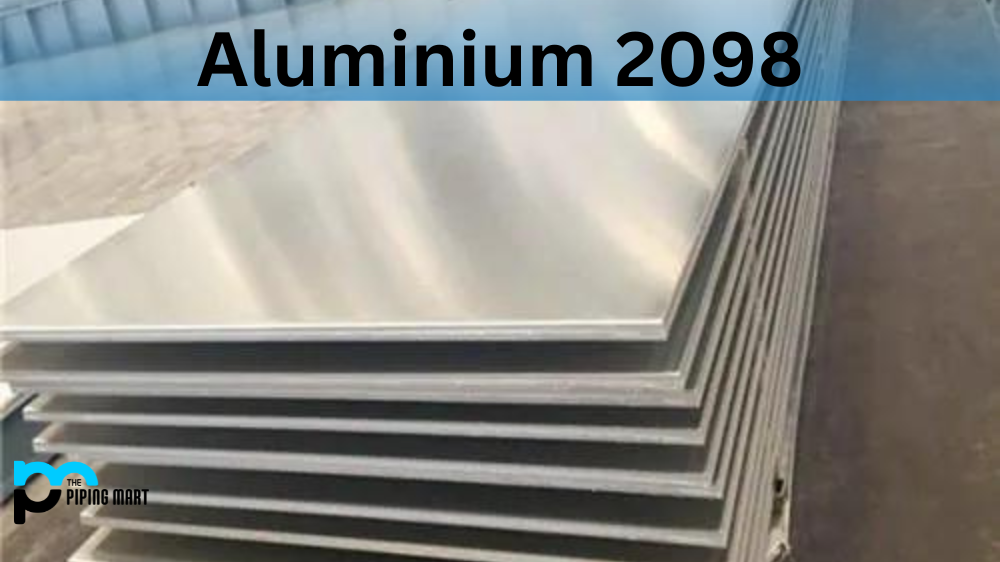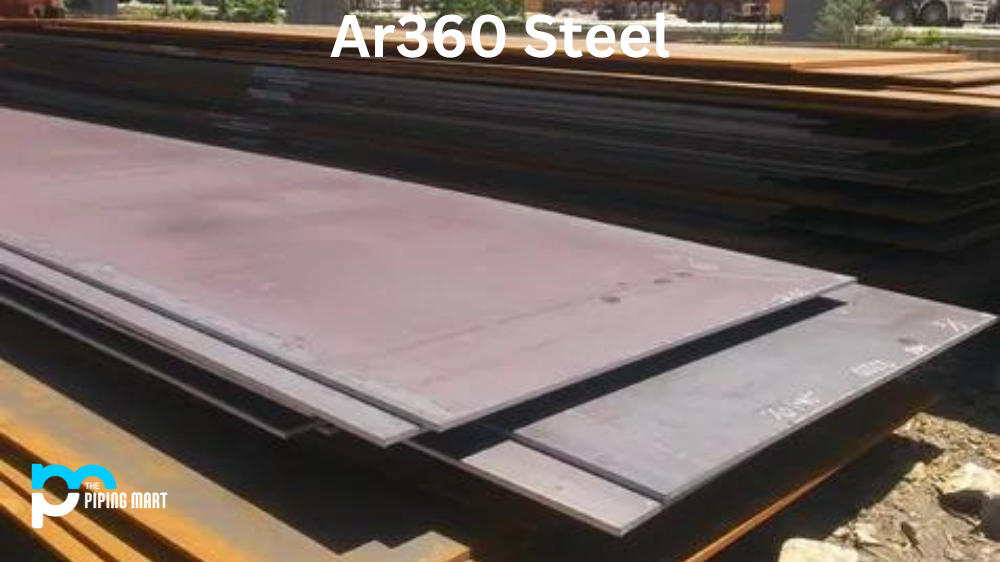AMS 4975 is a titanium alloy widely used in various applications due to its excellent combination of physical and mechanical properties and high strength-to-weight ratio. Suppose you are looking to use AMS 4975 for your project. In that case, you must clearly understand the alloy’s composition, physical properties, mechanical properties, uses, hardness, and heat treatment. Read on to find out about AMS 4975 titanium alloy and its uses.
What is AMS 4975?
AMS 4975 is a speciality aerospace steel developed and manufactured by the U.S.-based Allegheny Ludlum Corporation. It provides superior strength, toughness, and oxidation resistance, making it ideal for high-temperature components in aircraft engines, exhausts, and other applications where temperatures can reach up to 900°F (480°C). Additionally, it has excellent machinability characteristics that make it suitable for complex parts requiring precise tolerances.
AMS 4975 Composition
AMS 4975 is a refined, vacuum-melted titanium, aluminium, and vanadium alloy. The titanium content is around 90%, while the aluminium and vanadium contents are about 6% and 4%, respectively. The alloy is produced using the triple melting process that includes vacuum induction melting (VIM), vacuum arc remelting (VAR), and electron beam melting (EBM) techniques.
AMS 4975 Physical Properties
AMS 4975 has a density of 4.42 g/cm³, which is lower than steel’s. It also has a melting point of approximately 1,660°C (3,020°F) and a thermal conductivity of 11.4 W/mK at room temperature. Moreover, the alloy has a thermal expansion of 8.6 µm/(m·K), making it suitable for certain applications requiring dimensional stability.
AMS 4975 Mechanical Properties
AMS 4975 titanium alloy has excellent mechanical properties, high strength, good elasticity, and superior corrosion resistance. The alloy can withstand temperatures up to 315°C (600°F) and has a tensile strength of 1075 MPa (156,000 psi) with a yield strength of 965 MPa (140,000 psi). The alloy also has excellent fatigue strength and toughness at room and elevated temperatures.
AMS 4975 Uses
AMS 4975 is widely used in various industries, including aerospace, medical, automotive, and oil and gas. In the aerospace industry, it produces landing gear components, wing attachments, and engine components due to its excellent strength, lightweight, and thermal stability. The medical industry, AMS 4975 is used in making prosthetic devices due to its biocompatibility. Due to its corrosion resistance, the alloy produces exhaust systems in the automotive industry. AMS 4975 produces drill stem components in the oil and gas industry due to their high strength and wear resistance.
AMS 4975 Hardness
AMS 4975 titanium alloy has a hardness range of 363–388 HB, making it a relatively tough and durable material. The alloy’s hardness can also be improved through heat treatment processes.
AMS 4975 Heat treatment
AMS 4975 titanium alloy can be heat treated to improve its mechanical properties and hardness. The heat treatment process involves:
- Heating the alloy to a specific temperature.
- Holding it there for the prescribed time.
- Slowly cooling it to room temperature.
Heat treatment can improve the alloy’s strength, flexibility, and toughness.
Conclusion:
AMS 4975 is a notable titanium alloy due to its excellent combination of physical and mechanical properties, making it a popular choice in various industries. With a sound understanding of its composition, physical properties, mechanical properties, uses, hardness, and heat treatment, you can make informed decisions when considering the alloy’s use in your project. So, if you are looking for a high-strength and lightweight material for your application, AMS 4975 might be the alloy you need.

Abhishek is a seasoned blogger and industry expert, sharing his insights and knowledge on various topics. With his research, Abhishek offers valuable insights and tips for professionals and enthusiasts. Follow him for expert advice on the latest trends and developments in the metal industry.




